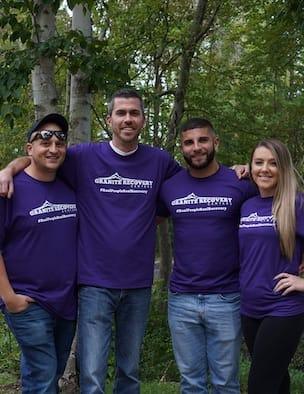What You Need to Know about Drug Rehab
The nation’s opioid crisis continues to destroy and claim lives as ever-increasing numbers abuse prescription painkillers and other highly addictive substances. Alcohol abuse is widespread, with the rate of Alcohol Use Disorder increasing among certain demographics. Benzodiazepines are commonly abused in what many medical professionals are referring to as a hidden epidemic. All of these substances present serious health risks to users, including the possibility of overdose, the physical decay wrought by heroin, the cognitive decline of alcoholism, or the severe withdrawal symptoms of benzodiazepine dependence.
Today, it is not just an opioid crisis we have on our hands; it’s an addiction crisis. While many try to quit on their own and live a life of sobriety, few make it. The only proven effective defense is drug rehab. If you or a loved one has a drug addiction, this is what you should know about drug rehab.
Why People Need Drug Rehab
Apart from the obvious health hazards of using such drugs, there are numerous threats posed by addiction. Addiction is a full-fledged disease that compels one to keep using a given substance, no matter the cost to one’s physical, emotional, mental, social, or spiritual health.
Addiction may arise due to desperation to control chronic pain, a primary cause of the nation’s opioid epidemic. It may come out of an attempt to soothe some unacknowledged emotional pain, trauma, or anxiety. Regardless of the form it takes, addiction has profound consequences for every aspect of one’s life, worsening problems rather than addressing them.

Substance abuse and addiction are difficult to treat alone. Many set out with the best of intentions to eliminate a dependence or addiction, but then encounter far too many temptations and opportunities for old habits to resurface. While some may be successful going it alone, seeking professional help for a substance abuse disorder is far more likely to result in real, long-term recovery. The earlier one seeks help for addiction, the more likely positive recovery outcomes can be achieved.
Choosing the Right Drug Rehab
Due to the variety of experiences and situations addicts face, there are numerous considerations to take into account when searching for the right care. How do you know what kind of rehab to go to? How long should it be? Should you have follow-up care? How long does that last? The questions about finding the right rehab for your addiction can be overwhelming. In order to get yourself started on the right track to finding a drug rehabilitation program that meets your needs, here are some characteristics to think about:
- Inpatient drug rehab or outpatient program (IOP)?
- 30 day, 60 day, or 90 day drug rehab?
- 12-step program, clinical treatment, or both?
- Holistic or experiential programs?
- Medical detox on-site or referred?
- Co-occurring disorder treatment?
- Gender-specific or gender-separate treatment?
- Drug rehab environment?
The Need for Medical Detox
Detoxification is often the first step that addicts face when deciding to confront an addiction. Addiction often comes with serious physical and mental withdrawal symptoms when clients cease using certain drugs. There are a number of variables that determine whether a person should participate in medically-monitored detox from drugs. They are:
- Substance type (alcohol, meth, heroin, etc)
- Time elapsed since last use
- Amount of substance used
- Presence of co-occurring disorder (dual-diagnosis)
- Other medications used
- The person is not a danger to themself or others
- The person does not need medical intervention
- The person is capable of self-evacuation in the event of an emergency
Medical detox facilities can be on-site at an inpatient drug rehab facility, but most often are offered separately and in a different location than the residential rehab. Detox can be conducted at hospitals, detox specialty centers, or in conjunction with residential care. They also vary based on the level of care, and are typically designated as acute or sub-acute. Acute level detox refers to overdose and life-threatening care, whereas subacute is for non-emergency detox. Granite Recovery Centers offers an on-site subacute medical detox supervised by medical professionals at our Green Mountain Treatment Center in Effingham, New Hampshire. Granite Recovery Centers provides medical detoxification for people who do not need immediate medical intervention, are not a danger to themselves, and are capable of self-evacuation in the event of an emergency.
Inpatient Drug Rehab (Residential Care)
A major consideration when searching for drug rehab care is determining what type of treatment you should have: inpatient or outpatient. Inpatient drug rehab or residential treatment centers provide 24-hour care for clients with drug or alcohol addictions. Inpatient rehab typically involves staying at a residential facility where clients participate in:
- focused recovery programs
- skill-building sessions
- group and individual therapy
- community-based exercises
- clinical psychotherapy
- exercise/holistic therapy
- 12-Step curricula (if offered)
Inpatient drug rehab programs at Granite Recovery Centers offer 24-hour support for recovering clients in a safe, beautiful, and encouraging environment. Our inpatient drug rehab programs provide clients with supervised, structured living that includes community building, the practice and development of life skills, individual and group therapy from licensed clinicians, physical exercise, recovery-oriented study, and recreation. Combining a base of 12-step work with evidence-based clinical therapy, Our New Hampshire drug rehab centers’ unique approach to treatment draws from these two highly effective and proven recovery techniques to provide each client with individualized care.
Outpatient Drug Rehab
With outpatient care, clients usually live at home or in a sober living home and attend therapy and other forms of care at a separate outpatient facility. Outpatient care is often appropriate for clients who need continued structure and guidance following primary care at an inpatient facility. As with inpatient rehab, outpatient programming varies greatly from facility to facility, but often have the following features:
- Group therapy
- 12-Step workshops/meetings (if applicable)
- Case management
- Holistic classes (yoga, meditation, etc)
- Skill-building workshops
- Career/education resources
- Access to psychotherapy
Granite Recovery Centers’ outpatient drug rehab services are 12-step-based and include the same integration of step work with evidence-based psychotherapy that is core to our treatment philosophy. We also utilize holistic therapies, meetings and workshops, and education in building recovery and life skills that help clients stay on track for continued recovery. Optional medication management, goal setting, and group work are also included in our Intensive Outpatient Program.
Inpatient Drug Rehab vs. Outpatient Drug Rehab
Inpatient and outpatient care are both possible options, but determining which is best for a particular individual depends on their personal needs. If one has a supportive environment conducive to recovery at home, outpatient rehab care may be effective. However, if one’s usual environment provides opportunities to access addictive substances or leaves one susceptible to dangerous peer pressure, inpatient care is most often the right call. The severity of one’s condition plays a critical a role in this decision, with more intensive inpatient approaches suitable for moderate to severe cases of substance abuse.
Granite Recovery Centers’ team of professionals works across disciplines to develop the right recovery plan for each individual. They also provide guidance for those who complete primary residential rehab treatment and need to find the next step in their journey towards recovery. Whether you opt for inpatient or outpatient care, no matter what your history and struggles with substance abuse are, we will help you set solid, achievable recovery goals and develop a detailed plan to achieve them. Our team will take you or your loved one’s unique challenges before and during recovery into account, and help find the best fit for you, whether it’s residential inpatient treatment, sober living, outpatient counseling.
Aftercare: Stepping Down to Sober Living
Aftercare in the form of sober living, is all about transitioning back into independent living, and giving individuals continued resources, direction, and purpose as they continue on their recovery journey. It’s also about offering strategies and techniques when temptation or difficult circumstances inevitably arise.

Aftercare Program Features
Granite Recovery Centers has options for aftercare rehab in four New Hampshire locations for those who desire the continued structure and support of post-primary care. Our Aftercare Programs feature the following:
- Daily/weekly meetings and workshops
- Daily/weekly psychotherapeutic sessions offsite at a designated IOP
- Daily/weekly goal-setting and check-ins
- A 12-Step environment, daily/weekly progress evaluations of step work
- Gender-separate facilities
- 12-step coursework continuation
- Skill-building (life skills: financial management, finding employment, etc)
- Individual and Group Psychotherapy at off-site IOP
- Case Management
- 12-Step Study
- Goal Setting
- Meditation
- Exercise
Sober Living Options at GRC
Sober living homes can house clients who need a structured environment to continue getting well. Sober living houses offer:
- Staff that help keep residents on the path to independent living
- Rules about conduct and cleanliness
- An abstinent environment

Granite Recovery Centers offers sober living homes in Manchester, NH providing recovering addicts an environment of safety, support, and comfort that is conducive to sobriety. Sober living also offers:
- 12-Step meetings
- Steel-on-Steel peer groups
- Regular and random drug testing
- Residents must obtain a sponsor within their first week of residence
- Residents must secure at least one service position within their first week of residence
- Participation in chores and house cleaning
Co-Occurring Disorders in Drug Rehab
Another consideration for choosing the right drug rehab for your addiction is whether or not they treat co-occurring disorders. A co-occurring disorder is when a client struggles with both a drug or alcohol addiction in conjunction with a psychological disorder, such as:
- Depression
- Anxiety
- Bipolar Disorder (BPD)
- Obsessive Compulsive Disorder (OCD)
- Post Traumatic Stress Disorder (PTSD)
Beyond their obvious negative impact on a person’s quality of life, mental illnesses like these are tied to poor outcomes for addiction recovery. Care for such conditions is offered at some drug rehab treatment centers, but not all.
Our clinicians understand how such conditions interact with and fuel addictive behaviors, as well as how these behaviors and beliefs may be treated. In our drug rehab care, we focus on using therapies that help clients learn to accurately describe their experiences, recognize cravings and negative self-beliefs, and develop strategies to cope with difficult feelings. We seek to replace negative beliefs with recovery-oriented attitudes.
12-Step Approach to Drug Rehabilitation
Granite Recovery Centers uses a unique approach to recovery. While many drug rehab facilities incorporate 12-step work into their treatment in some form, few treat it as foundational from Day 1, combining it with clinically-backed, evidence-based psychotherapy.
At Granite Recovery Centers, step work provides the structure that therapy and other clinical modalities inform and reinforce. These two components of our approach are tightly intertwined and inseparable, and each is key to how we plan and structure recovery for our patients. The 12 steps provide an outline and road map for recovery, while therapy provides patients the renewed perspective and emotional tools necessary to get there.
Exercise and Holistic Therapy as a Part of Treatment
Exercise and holistic therapies, such as yoga and meditation, has proven helpful and therapeutic along the road to sobriety in drug rehab. While some addiction specialists argue that body-centered therapies are necessary for successful rehabilitation from addiction, not all drug rehab centers offer it as part of treatment.
We believe that since addiction often encourages, and is accompanied by, a dangerously unhealthy lifestyle that leads to physical and emotional decay; that holistic therapies should be included in care. That’s why we place particular focus on our patients’ physical and mental well-being, encouraging a number of holistic approaches to treatment in conjunction with step work and therapy. These include:
- regular exercise
- training in stress-reducing
- mindfulness skills such as meditation, spiritual care and development
- practices like therapeutic writing/journaling
Even though drug addiction destroys lives in many similar ways, no two individuals experience addiction the same way. This is why our combination of step work and therapy is not a rigid plan, but rather a set of guiding principles. We adapt our care to the individual’s needs, offering personalized treatment planning that addresses the specific challenges that each person faces in their unique experience of addiction.
Patients work with therapists, step work councilors, and recovery coaches to set goals that make sense for them and develop a plan that works for each individual.
Family Involvement in Drug Recovery
Addiction often tears families apart. Family members frequently blame themselves for a loved one’s struggle with substance abuse, or don’t know how to support an addicted loved one in a healthy way. The boundaries between compassionate support and codependent enabling of an addiction can be difficult to navigate.


Gender-Separate and Gender Specific Drug Rehab
Addiction often occurs alongside difficult or traumatic experiences in a person’s history. Likewise, societal expectations around gender, and a person’s expected adherence to gender stereotypes, can cause a great deal of stress which may fuel addictive behaviors.
Finding the Right Environment for Recovery
One’s environment plays a crucial role in recovery outcomes. Because stress is one of the biggest predictors of drug relapse, a peaceful environment is key to successful treatment.

Similarly, an environment must be free of temptations and opportunities to use, or otherwise be exposed to drugs.
Granite Recovery Centers has 12 drug rehab facilities across New Hampshire catering to every level of addiction recovery care. Our primary residential rehab facilities are located in scenic surroundings removed from distractions, sitting on over 70 acres of beautiful land. Both of our inpatient rehab facilities feature 24-hour monitored support and structured daily schedules for clients. Likewise, our aftercare and sober living facilities are all located close to recovery resources, such as 12-step meetings, medical care, and employment opportunities.
The Full Continuum of Care at GRC
Granite Recovery Centers offers a wide spectrum of substance abuse and drug rehab care that is designed to meet you or your loved one wherever you are in your battle with addiction. If you are new to recovery and need the structure of an inpatient approach, we can help.

If you’re in early recovery and need a safe environment in which to hone the skills needed to transition back to daily living, we offer sober living accommodations. From detox to residential care to extended care and sober living and outpatient programs, our unique and proven approach to addiction recovery can help you.
Our Philosophy on Drug Addiction
At Granite Recovery Centers, we understand that addiction is a disease, not a personal failing. Addiction isn’t solved through sheer willpower. It takes determination in combination with the right tools and approaches that treat the underlying causes of addiction, which may not always be apparent.
Addiction doesn’t occur in a vacuum, so any drug rehab program treating addiction can’t either. That’s why we focus on getting to the roots of addiction, whether they exist as co-occurring mental disorders like anxiety or depression, unresolved trauma, the pressure of personal and societal expectations, or any other number of difficulties. Treating these issues doesn’t just help treat an individual’s addiction. It’s a vital step towards a greater quality of life and a renewed sense of purpose, meaning, and self-confidence.

A Team of Real People in Real Recovery
Treating addiction takes more than medical expertise. It takes empathy, compassion, patience, and flexibility.
The team and staff at Granite Recovery Centers are all experts in their fields, who understand and care about their clients’ struggles with addiction. Our team includes people who have faced addiction themselves, who have come out the other side with a deep understanding of how addiction works and a unique level of empathy for those who struggle with this vicious disease.
From our admissions specialists to our licensed clinicians and sober living coaches, every member of Granite Recovery Centers deeply cares about, and wants to do right by our clients and anyone in the grip of addiction.
Drug Rehab in New Hampshire
Granite Recovery Centers in New Hampshire offers a spectrum of substance abuse and drug rehab care across numerous facilities throughout the state. Our facilities have a low client-to-clinician ratio, ensuring you or your loved one gets the individualized, personal care you need. Services provided range from medically-supervised detox, to inpatient and outpatient rehab, and sober living facilities. With recovery programs founded on a combination of 12-step work and clinically-backed treatment from caring professionals, our individualized approach to treatment will help you or your loved one achieve lasting recovery.
To learn more about drug rehab, substance addiction, and related topics, please visit our Resource Section. Make sure to also check out our Personal Stories of Addiction Recovery.
If you or a loved one needs help from your addiction and wants more information on our drug rehab programs, please contact our admissions specialists at 855.712.7784 .







